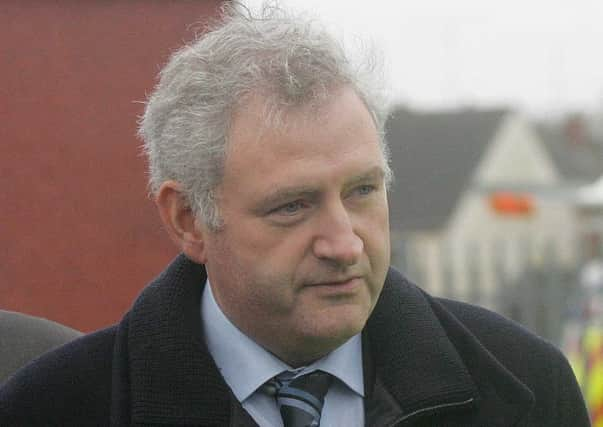Amnesty for soldiers '˜would fuel IRA claims for similar deal'


Norman Baxter told the News Letter he is worried the UK Government may be planning some kind of deal with republicans to allow it to happen.
He was speaking following news, reported on Monday by the News Letter, that MPs are considering a bill to limit the exposure of former Armed Forces personnel to prosecution for Troubles crimes.
The reports had emerged in the Daily Mail and The Sun.
Advertisement
Hide AdAdvertisement
Hide AdThe Government has not officially confirmed – or denied – such plans.
Among the measures mooted in the press reports were an upper age limit for those who could be investigated, and a maximum length of time which they would have to serve in jail if convicted.
The News Letter yesterday carried an interview with Mr Baxter – a former detective chief superintendent until his retirement in 2008 – in which he denounced the relative ease with which paramilitary suspects can obtain bail.
Asked about the rumours of a bill for ex-soldiers, he said such a measure risks opening up a “new front” for “IRA/Sinn Fein”.
Advertisement
Hide AdAdvertisement
Hide Ad“I don’t think there should be special treatment in isolation for either the military or the police,” he said.
“If you give exemption to soldiers you create a [situation] where republicans say: ‘The soldiers murdered our people and the British Government have given them an amnesty – therefore we want an amnesty for IRA killers’.
“I wouldn’t support the granting of special arrangements for the military on the basis that it would provide a context for the IRA to claim an amnesty for their killers.”
He added: “I’d be concerned if the British Government are considering introducing this, they have agreed a concession with republicans.”
Advertisement
Hide AdAdvertisement
Hide AdThese could be concessions on the “investigation of terrorist crime”, he said.
According to the book Lost Lives, which gives a compendium of Troubles deaths, from 1996 to 2006 the Army was responsible for killing 301 people, including 158 civilians (138 of whom were Catholic). It said the RUC killed 50 people, including 24 civilians.
Meanwhile, 503 Army personnel died, plus 206 UDR/RIR personnel, and 303 RUC officers (including reserves) – and over 2,000 civilians in total.
On the issue of legacy at large, Mr Baxter said it is “most unjust that state resources are being focused on historic cases involving the military, whilst the atrocities committed by the IRA receive little attention”.